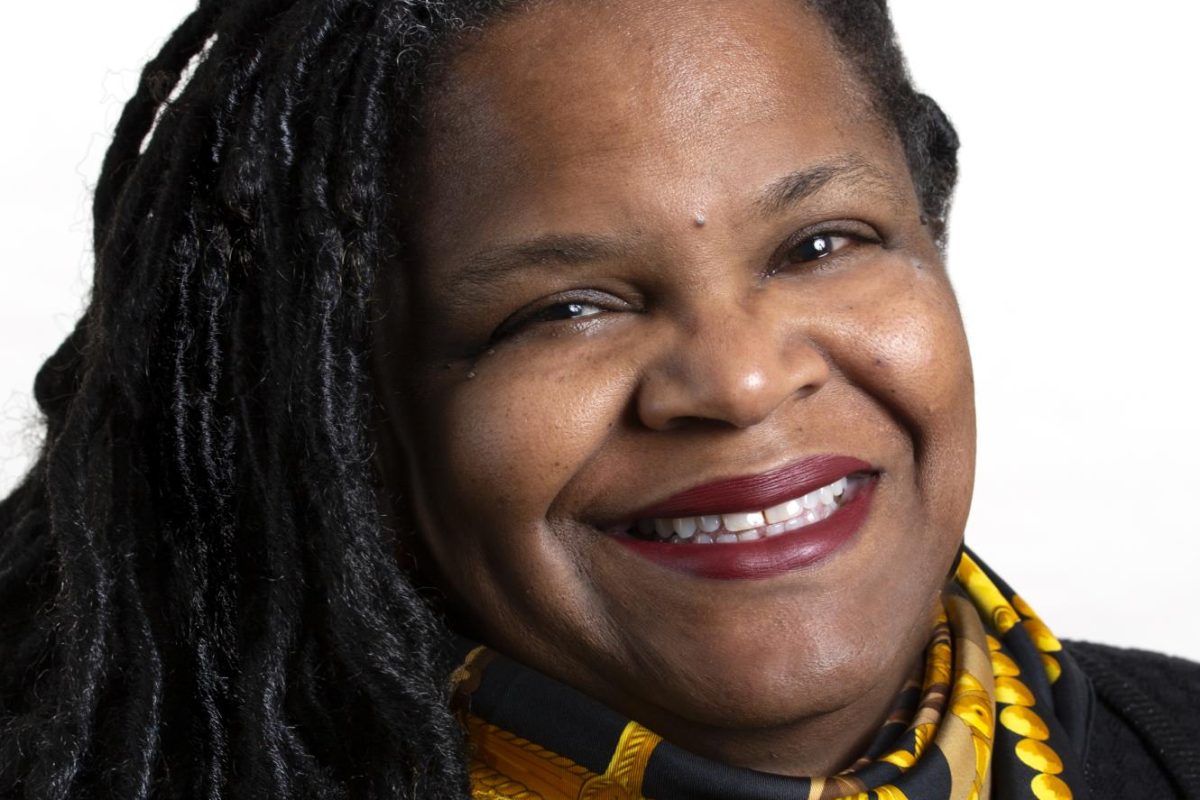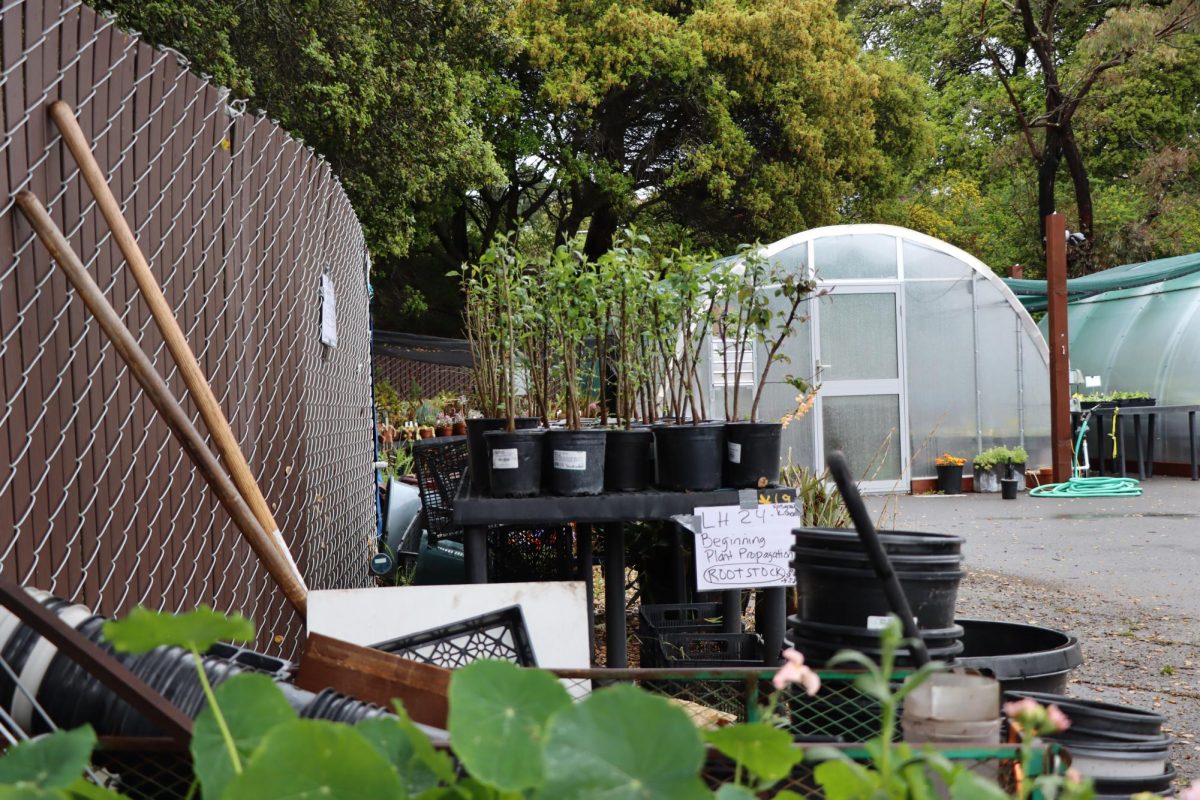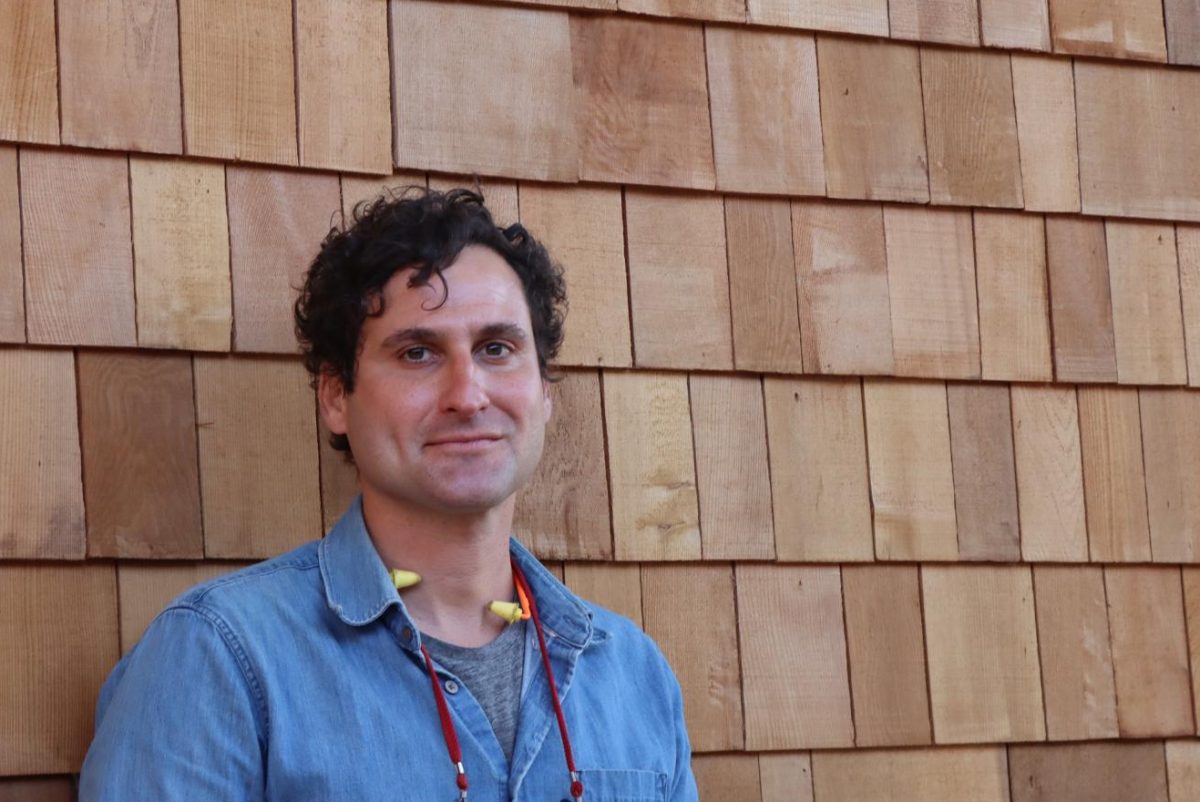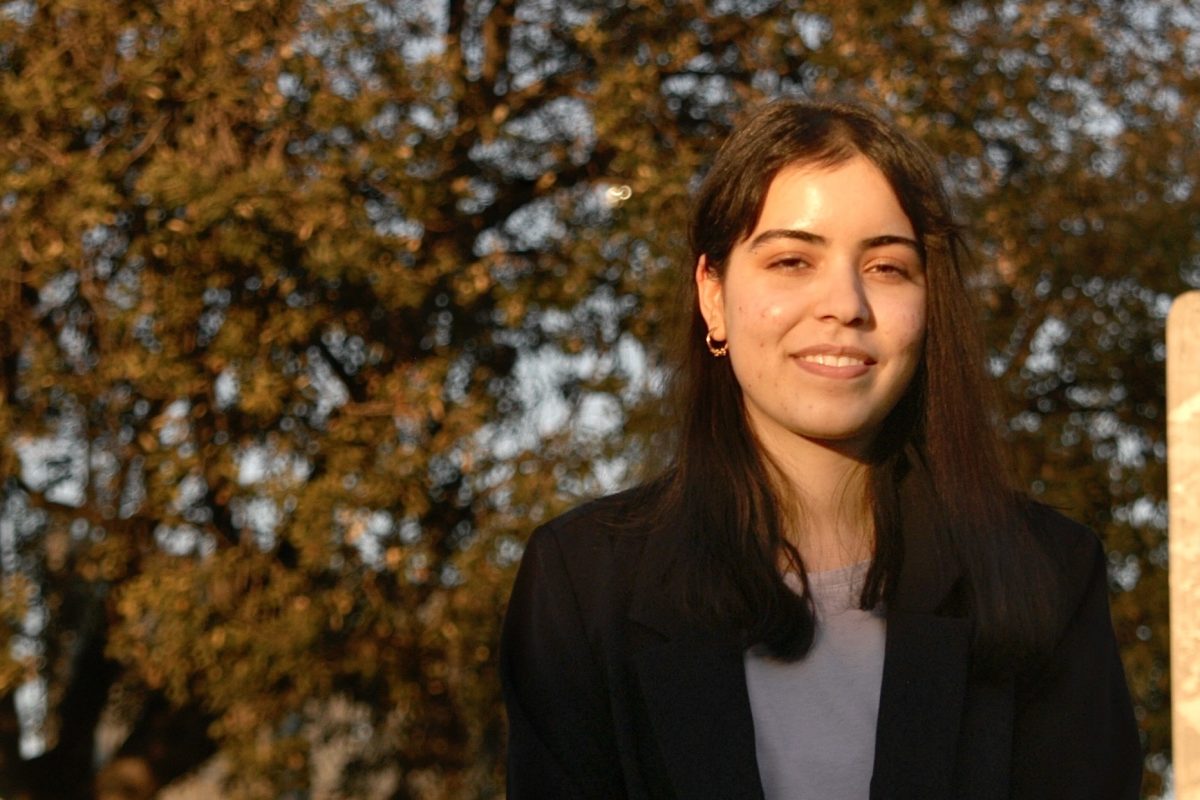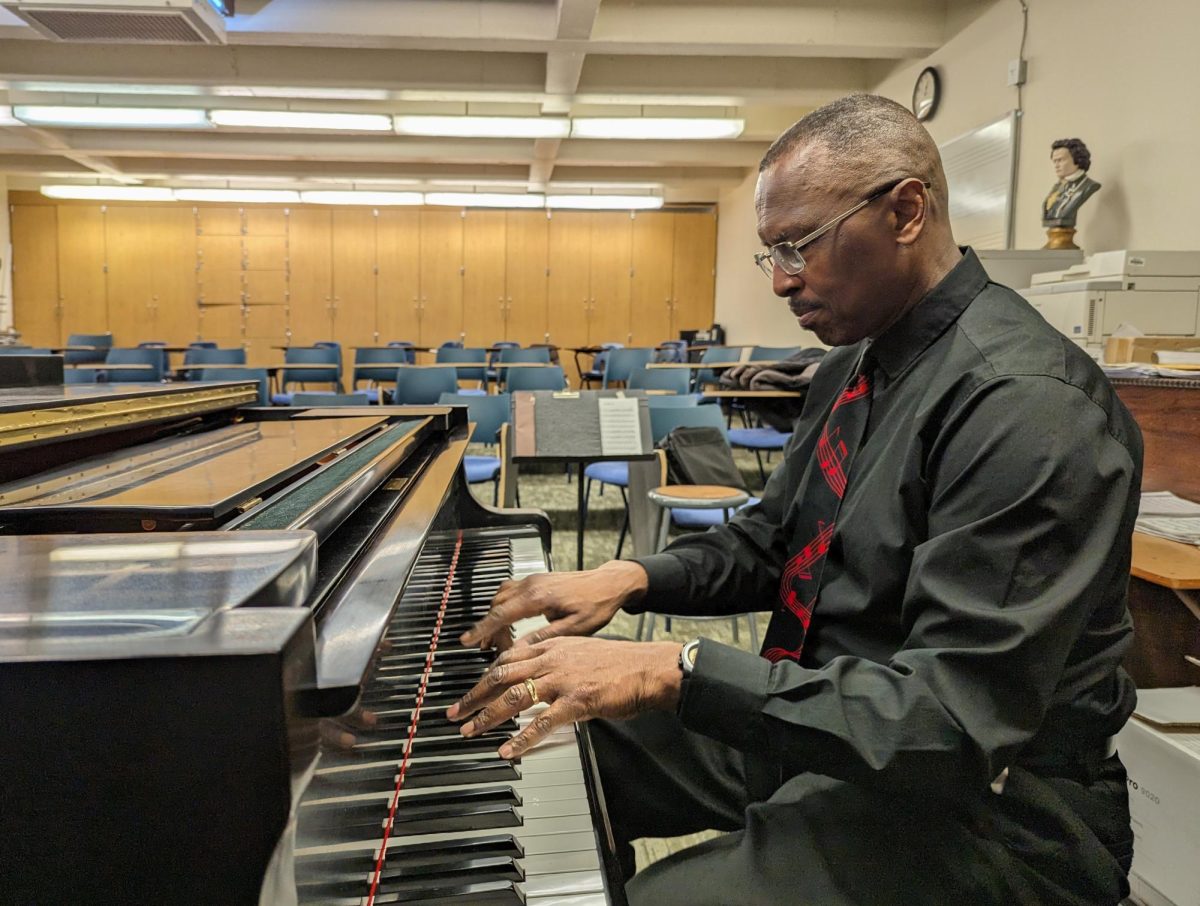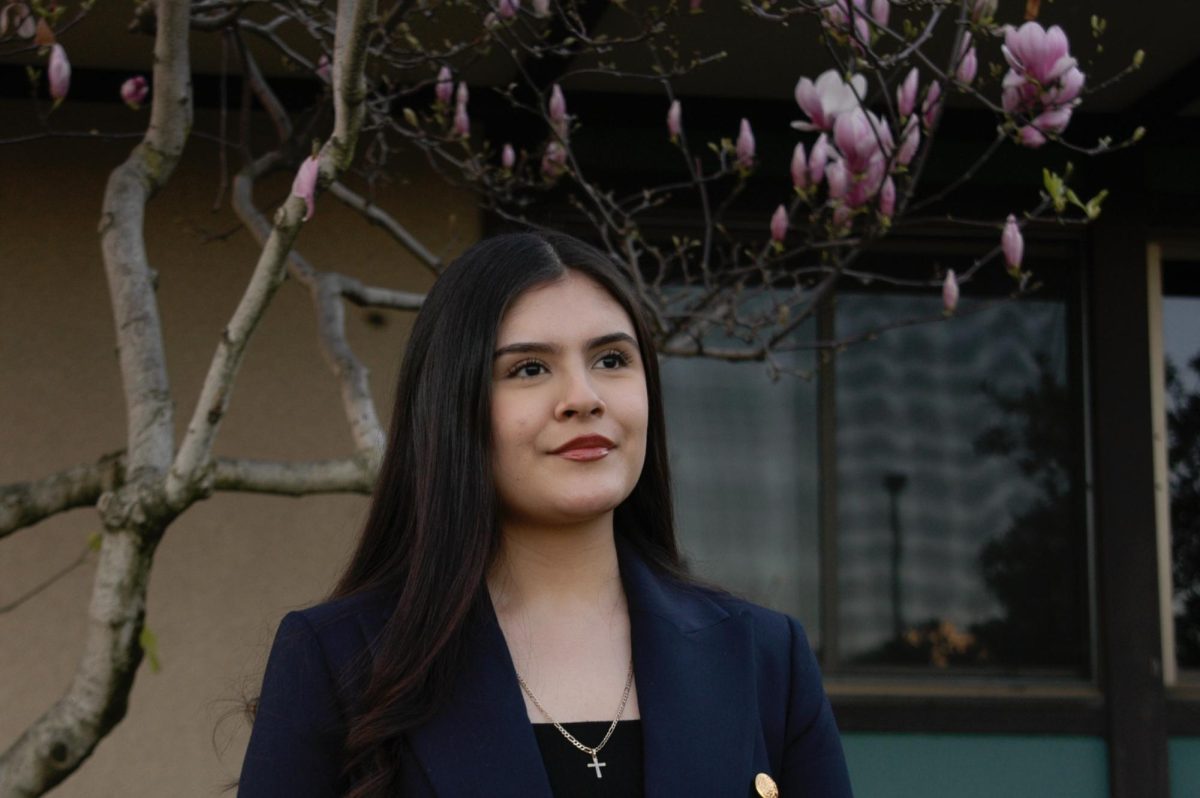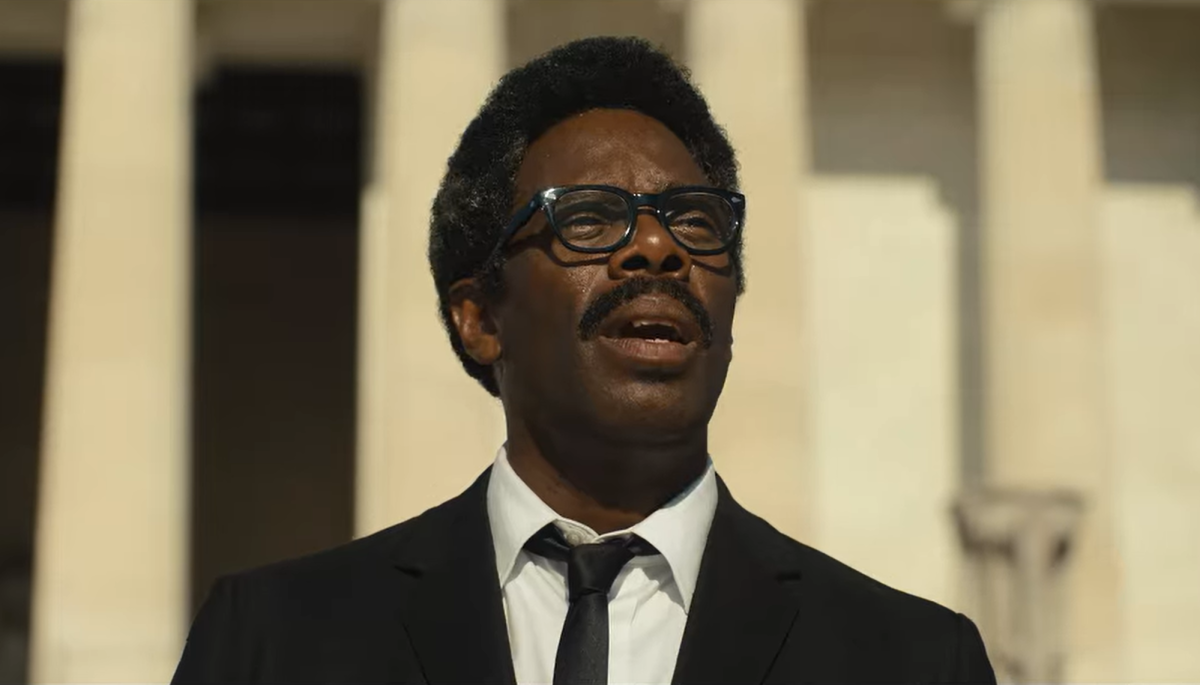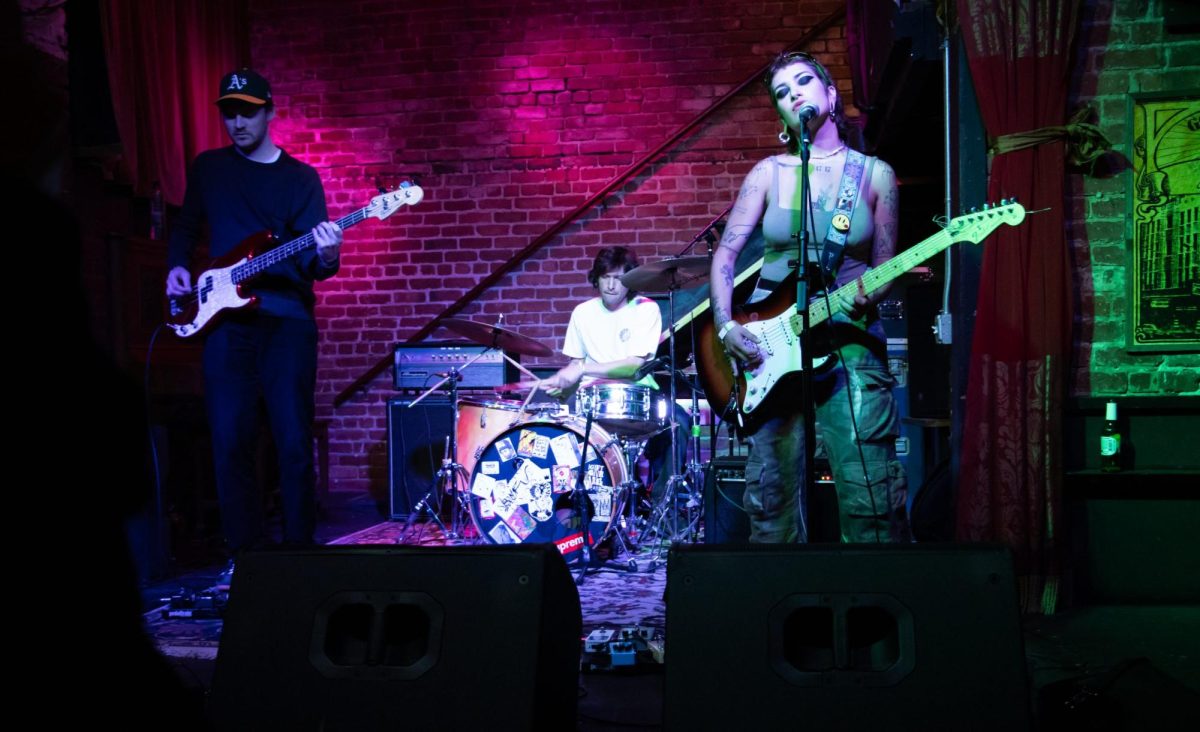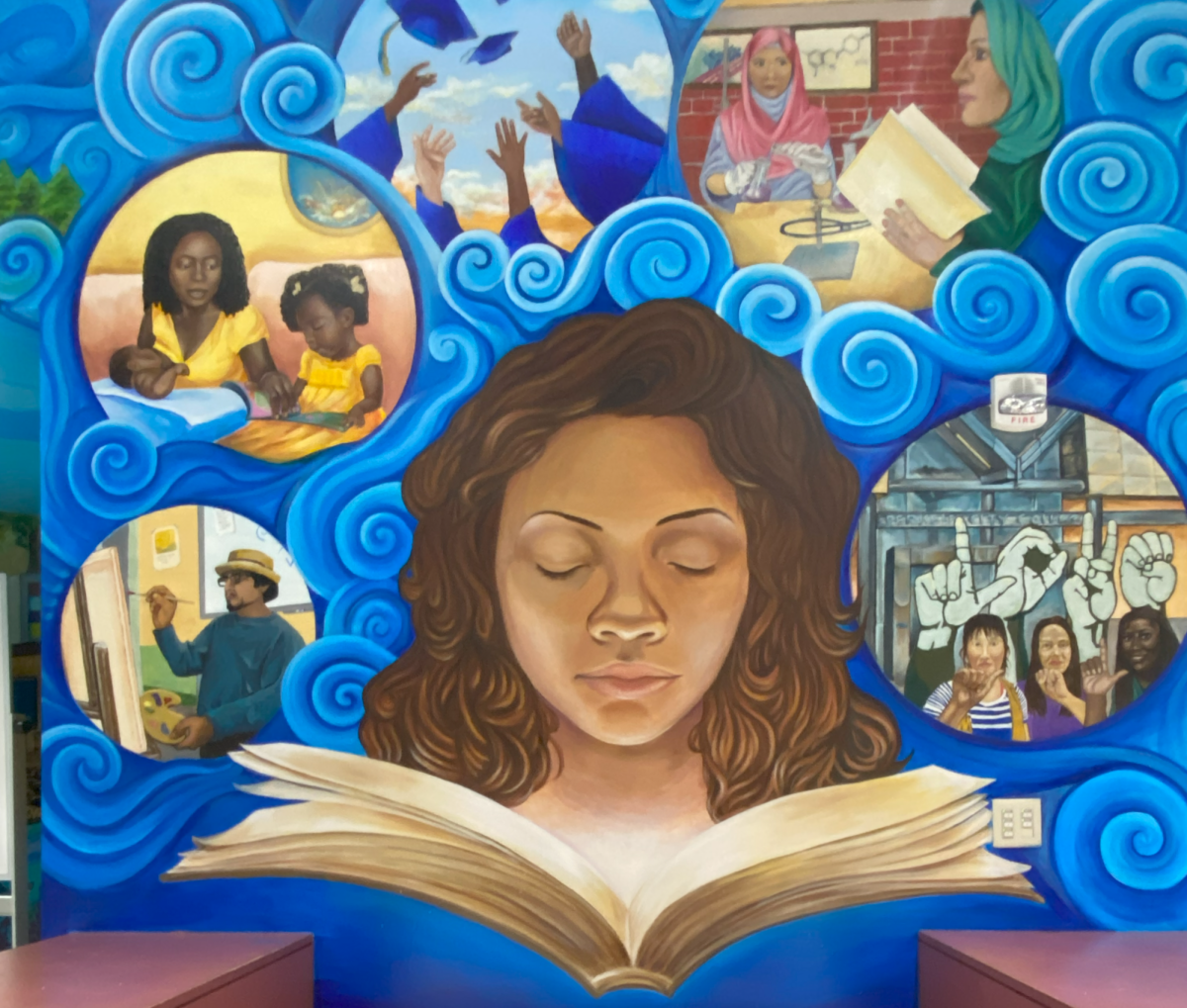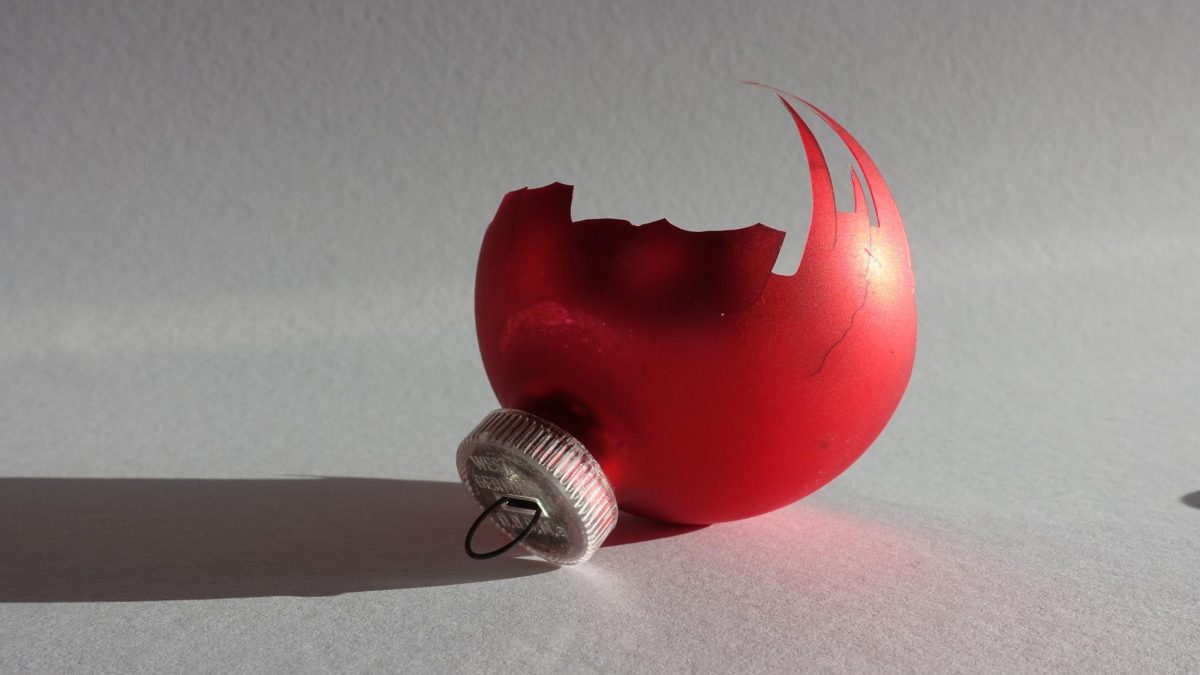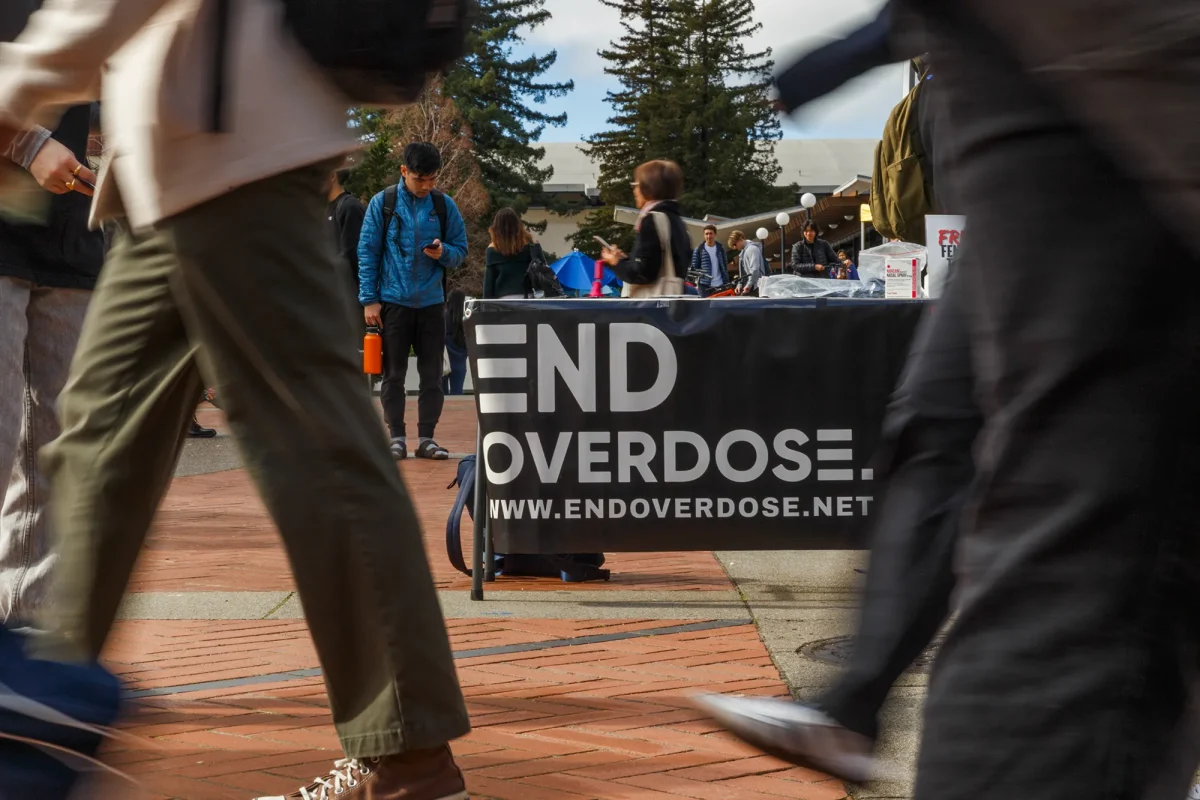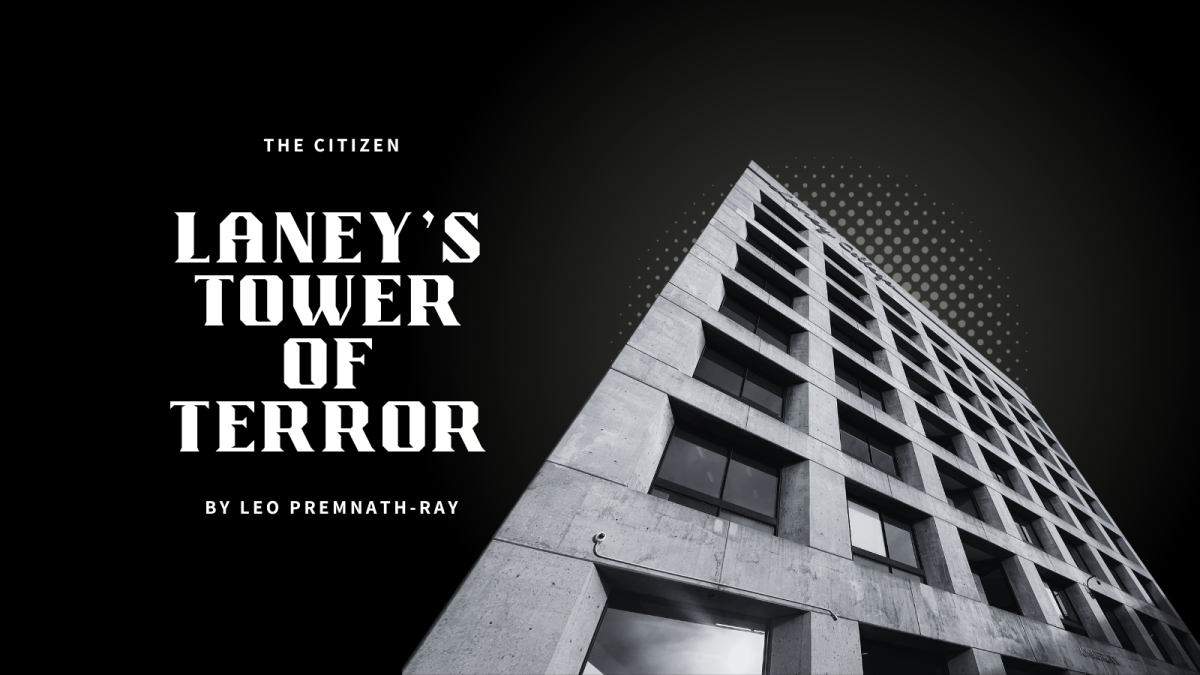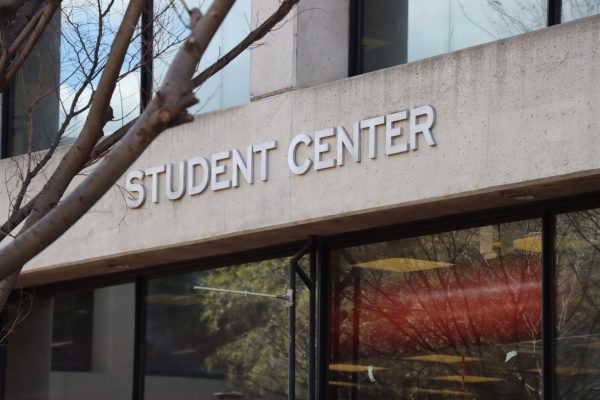by Tower Staff Writer Sydney Toth
The audience bustled in the lobby of the Laney performing arts center on March 22, as anticipation for the play “We Are Pussy Riot or Everything Is P.R.” began to build. An energetic atmosphere seemed to pulse through the lobby. Walls lined with the show’s promotional advertisements and “ushers” dressed in all black heightened the suspense as the clock ticked closer to the opening of the theater doors.
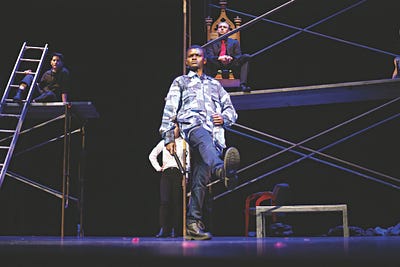
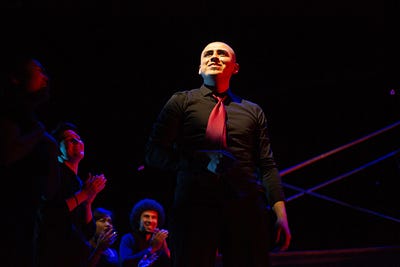
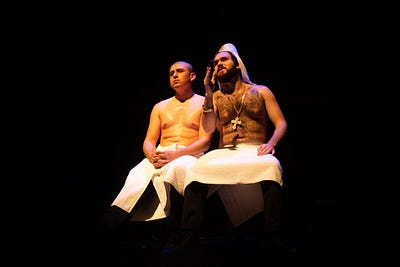
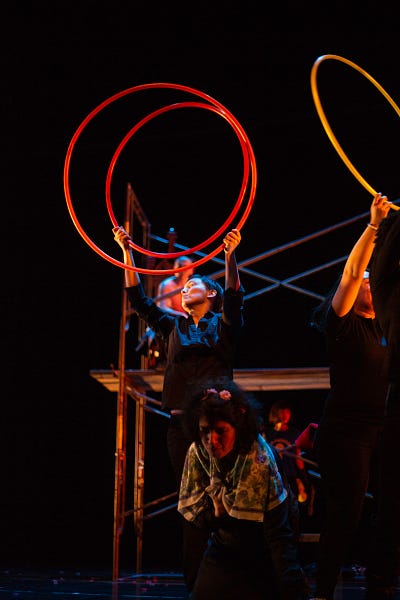
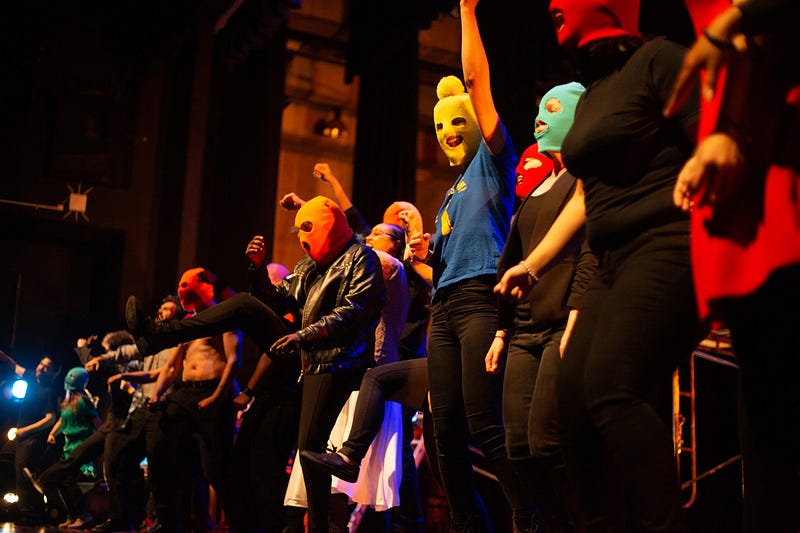
Suddenly, screams echoed near the entrance of the theater and commotion began to break out. Alarmed, the audience followed along with trepidation, only to discover that the commotion was merely an interactive first scene of the play.
Written by Barbara Hammond, “We Are Pussy Riot or Everything is P.R.” is an off-Broadway play that takes audiences on a journey through the evolution of one of the most renowned feminist movements to date.
Upon entrance, a sea of orange ski masks covered the ground. Audience members funneled into the theater one by one. On one end, ushers directed audience members to their seats, while others yelled at them to choose a side — the side of power or the side of justice.
Pussy Riot is a punk rock group and inspiration behind the play. The group is comprised of 11 women, aged 20–33, who stage various public events that embody provocative, guerilla-theater-style tactics in Russia. Founded in Aug. of 2011 in Moscow, their performance art aims to condemn both Vladimir Putin and the Russian Orthodox Church.
Religion plays a large factor in the foundation of Russia, and feminism has been commonly referred to as a “sin” by the church. This mainly has to do with the idea that feminist groups tend to go against institutions in ways that result in uproar — a result exemplified by such movements as the “Pussy Riots.”
Everything about the play, from the interactive cast-audience relationship to the out-of-the-box storytelling, kept the audience engaged. The cast did an excellent job of portraying historical legacies, and the message of the production was clear.
“Feminism isn’t dead,” said cast member Shadow Long. “It’s a big issue in today’s society, along with sexism, treatment of prisoners and propaganda.”
The role of the “Pussy Riots,” they maintain, is not one of disruption but one of social justice.
One scene after the other brought the audience further into the story that was being presented. The play not only served as a form of entertainment — it also as a profound lesson in history.
In real life in Russia, in Aug. of 2012, three members of Pussy Riot (Nadezhda Tolokonnikova, Maria Alyokhina and Yekaterina Samutsevich), were arrested on the counts of “hooliganism motivated by religious hatred,” following an illegal public performance at Moscow’s Cathedral of Christ the Savior.
During the 2014 Winter Olympics, held in Sochi, Russia, Pussy Riot filmed a music video explaining that Russia was a country that suppressed human rights.
“Here, we are banned from speaking out,” said Tolokonnikova. “Here everyone’s rights are banned, including political activist, LGBT representatives and ecologists.”
The court trial that followed caused international human rights groups and prominent entertainers to claim that the performers were being held as “prisoners of conscience.”
All three members were sentenced to two years in prison following the arrest. Samutsevich was released following an appeal on Oct. 10, 2012 while the remaining two were not released until Dec. 23, 2013 following the approval of amnesty by the State Duma- the lower house of the Federal Assembly of Russia.
The group, and the “Pussy Riots” they created, served to make change. Despite the repercussions that followed, the the 100-minute production with a positive note.
”We don’t aim to be good, we aim to be heard,” the cast intoned.


